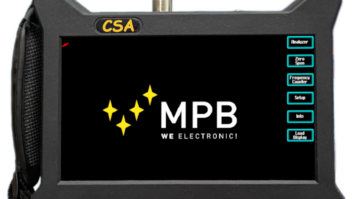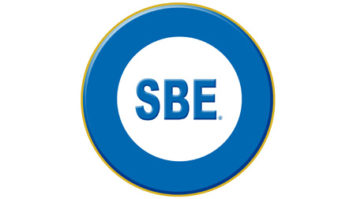Proposed TV Spectrum Auction is Food for Thought
Mar 3, 2010 10:57 AM, By Mark Krieger
The FCC’s recent proclamation that it will attempt to buy out additional TV spectrum for wireless broadband by cutting broadcasters in for a share of the auction proceeds may not have jumped off the page for readers in the radio industry, but perhaps it should have.
What the FCC has proposed marks a sea change for terrestrial broadcasting in two respects. First, the current Commission is firmly and fully committed to a wholesale expansion of wireless broadband. What’s more, its chair, Julius Genachowski, is a true believer. He has seen the future, and it is wireless. And we’re talking ubiquitous, affordable, competitive wireless broadband.
Whether that’s achievable in the oligopolistic world of mobile wireless is quite another matter. Perhaps it’s a totally naive vision.
Equally intriguing is the fact that less than a full year into the digital TV transition the broadcast TV revenue model is in such disarray that at least a few TV license holders are likely to consider the possibilities. In an era of pull versus push media, local TV revenue is becoming more about retransmission cash (from cable/DBS) and less about spot revenue. In other words, TV broadcasters now face the reality of what it really means to be in the content production business. If a TV broadcaster can maintain 90 percent of an audience via cable and DBS while completely eliminating the need to maintain a transmitter plant, the FCC’s proposition might not be so unthinkable. But what any broadcaster needs in order to make the leap is an unshakable faith in its network relationship and real value of its unique content.
Now take these things in context while reading a thoughtful and seemingly well-reasoned column by iBiquity CEO Robert Struble entitled (in part) “…Pandora is not the Death Star”. Struble’s thesis is that fixed broadcast stations are the best use of spectrum because they permit a near infinite number of connections within the signal’s coverage area with no corresponding increase in bandwidth. He uses that point to stake an adamant claim that because every broadband stream involves a unique connection between server and client, mobile broadband must inevitably remain a metered service that can never supplant the terrestrial radio broadcast model for economic reasons. Spinning it this way, the license to occupy a 200kHz-wide piece of spectrum covering a fixed piece of geography is radio’s ultimate trump card — and the signal is the franchise.
Well maybe so, at least for now. But somehow I keep coming back to those TV broadcasters as they ponder the economics of surrendering their license based on the premise that content is at the heart of their business, regardless of how its delivered or where the money’s coming from.
When that time comes for radio, as it inevitably will, I wonder how secure we’ll feel about our content.
IBOC by State: North Dakota (March 2010)
There are 10 stations in The Peace Garden State broadcasting 18 HD Radio channels….
Liberty Rumors Orbit Sirius XM
Depending on which side of Wall Street you walk on, the buzz centers on just what Sirius XM’s financially flush savior, Liberty Media, may be up to….












